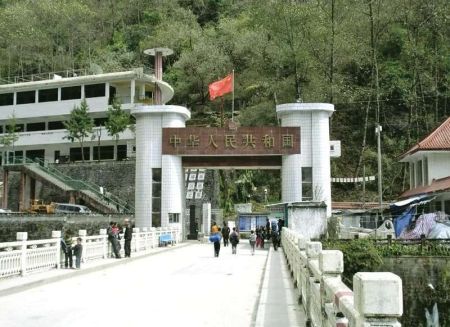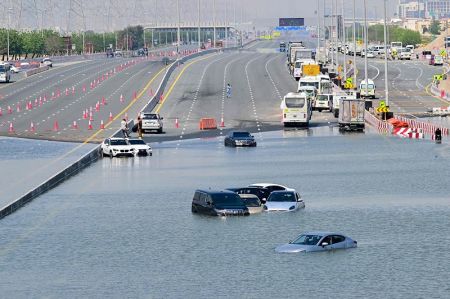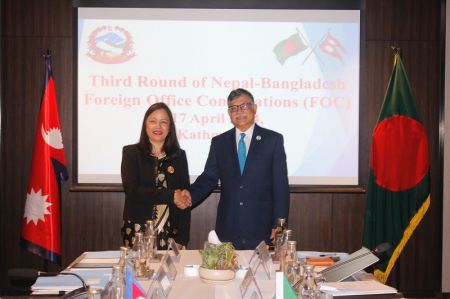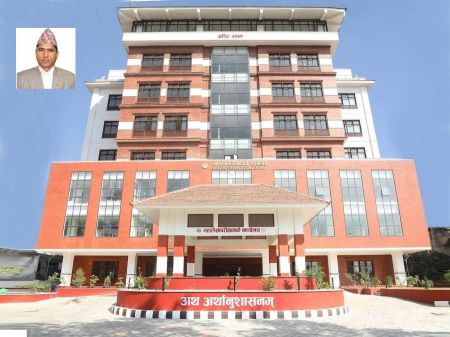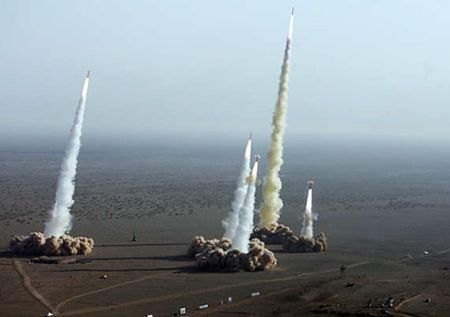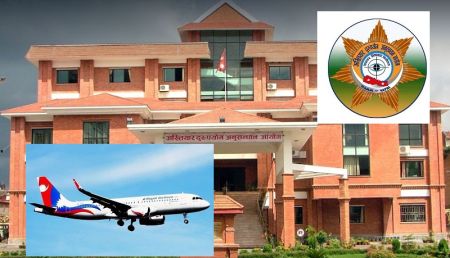The most positive development of the ordinance budget for FY 2013/14, presented on 14th July by Finance Minister Shankar Koirala, is that it proposes the income and expenditure estimates for the entire fiscal year. The budgets for the last four fiscal years had come in the form of quarterly or half-yearly estimates due to incessant political squabbles among the political parties at play. The government employees enjoyed the pay rise of some 20 per cent and private sector seemed largely contended with some liberal approaches adopted by the budget speech. The criticisms of the 'too large a size' and 'implementation nightmare' were routine and expected.
But, the saddest part is that this budget in a bid to please everyone with some instant toffees, fails to address the most pressing economic problems faced by Nepal at present. The Nepali economy now faces three very worrisome problems. First, the GDP growth plummets to 3.6 percent, the lowest in the decade. Second, the export-import ratio is at whopping 1:10 and the recorded trade deficit is of the last fiscal year is estimated to be well above Rs 500 billion. If service imports like Nepali students studying abroad, holiday and healthcare trips Nepalis are making abroad are also added it would cross the Rs 600 billon mark. And, the third, the authorities have failed to tame the galloping inflation, that effectively stands between 14 to 16 per cent and the CPI-based one has never gone below 10 percent for several years now.
The deficit budget by more than 25 percent of proposed expenditure even fails to acknowledge the fact that the economy is in grave crisis. It is unable figure out where the growth propellants would come about. The first three priorities of the budget are hydropower development, agriculture and infrastructure development--in that order. But, beyond rhetoric, it fails to enlist true problems and bottlenecks in respective sectors. It says many things about hydropower but fails to make any commitment on what would happen to large joint venture projects like West Seti and Arun III that are pending for years largely for unspecified reasons. Any development of hydropower projects in commercial scale will no meaning unless Nepal and India enter into power trade agreement. Bilaterally beneficial transmission lines and above all a climate of mutuality in investment and power trade are crucial, which could only go ahead if Indian investment is not discouraged. This however doesn't mean Nepal should sacrifice her interest. For any hydropower project, it would take long to be able to contribute to GDP growth.
Even if agriculture is deemed to be a growth engine, it is time that the sector came out of platitudes like 'modernization, commercialization and marketization' of agriculture. The strategies of government subsidies on seeds and fertilizers adopted for years have never worked for several reasons. The sector now faces new problems like acute shortage of farm labours and sustainable pricing mechanism and value addition of products. If Nepali products were to be promoted regressive customs and other duties should be revised accordingly. But this budget doesn't even touch upon these newer challenges.
Growth by infrastructure development is highly indirect proposition. The GDP can grow with only very massive investment, not of pork-barrel nature but only in the form output targeted creation of transportation and communication linkages. In view of these realities, it can be easily concluded that the budget doesn't make any sensible effort to fill the growth gap.
It is surprising to see that out of eight, the reducing the trade deficit is listed as the seventh objective. In fact, it should have been the first and the programmes like hydropower development should have been part of export promotion strategy in the long- run. Similarly, inflation control has been an outcome of a perverse nature foreign trade than the domestic trade factors.
To see recent, unconventional trends in economy, both in terms of problems and prospects, we needed a clear departure from traditional bureaucratic verbose in national budget. But, this particular budget has indulged more in this outdated practice. This is truly a year of opportunity missed.






